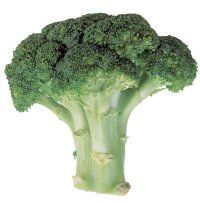A healthy, balanced diet is the only way to get all the vitamins that may lower cholesterol. Such a diet -- low in saturated fat, trans fat, and cholesterol -- plus a lifestyle that includes regular physical activity and losing excess weight, form the basis for fighting heart disease.
Yet, the battle being waged against the high-cholesterol plaques in the walls of your blood vessels is a complex one.
Advertisement
Vitamins and minerals -- and their role in helping to stave off heart disease -- are continually under scientific investigation; sometimes they show promise, and other times they stir up controversy. The form that vitamins and minerals take -- in food or in supplements -- seems to be an especially important factor in determining their effectiveness in promoting heart health.
There's no question that your food choices can influence your risk of disease, but it's possible that a variety of other compounds in foods -- such as fiber or phytonutrients -- may act in harmony with vitamins or minerals to enhance their health effects. Moreover, the antioxidants in food may be beneficial.
In fact, studies show that eating antioxidant-rich foods, such as fruits and vegetables, lowers the risk of heart disease; however, evidence suggests that antioxidant supplements do not lower risk. This may be because lifelong exposure to an antioxidant-rich diet -- before atherosclerosis or signs of heart disease develop -- may offer better protection.
The only way you can be assured of getting the full complement of health benefits vitamins, minerals, and antioxidants offer is to make food your primary source of nutrients, and consider supplements only to reach any higher dosages that may be needed. This approach also means that any possible toxicity that accompanies very high intakes of some supplements will be avoided.
Next, learn about antioxidants and vitamins that can help your cholesterol levels.
This information is solely for informational purposes. IT IS NOT INTENDED TO PROVIDE MEDICAL ADVICE. Neither the Editors of Consumer Guide (R), Publications International, Ltd., the author nor publisher take responsibility for any possible consequences from any treatment, procedure, exercise, dietary modification, action or application of medication which results from reading or following the information contained in this information. The publication of this information does not constitute the practice of medicine, and this information does not replace the advice of your physician or other health care provider. Before undertaking any course of treatment, the reader must seek the advice of their physician or other health care provider.
Advertisement

